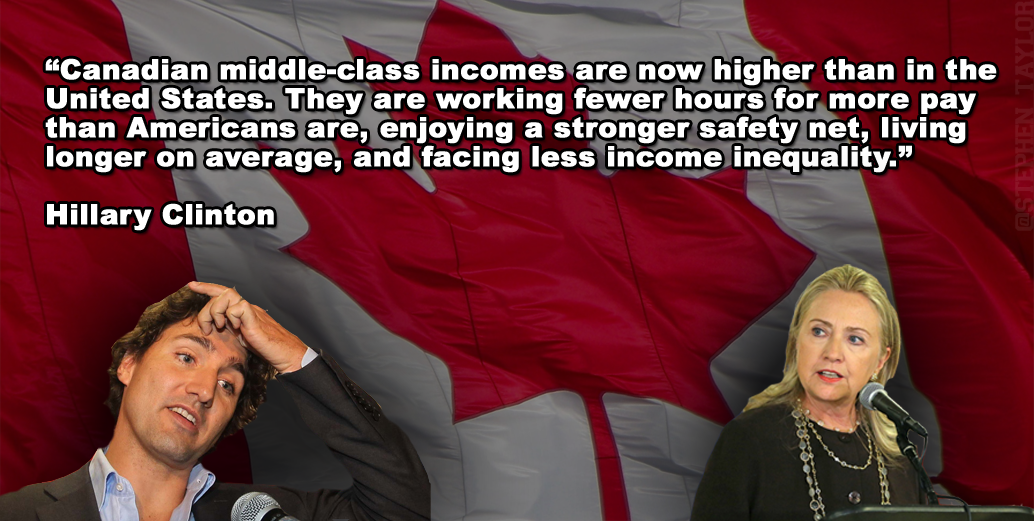- Reaction score
- 0
- Points
- 160
Ezra Levant nails it again. Does anyone outside the Ottawa bubble really care about the mostly administrative minutae the Fair Elections Act proposes to update?
http://www.sunnewsnetwork.ca/sunnews/straighttalk/archives/2014/04/20140413-074546.html
http://www.sunnewsnetwork.ca/sunnews/straighttalk/archives/2014/04/20140413-074546.html
EZRA LEVANT | QMI AGENCY
According to the database Infomart, in the last 30 days, the Ottawa press gallery wrote 267 news stories about Conservative Party staffer Dimitri Soudas and his fiancée, Eve Adams, an Ontario MP. Soudas was fired by the Conservative Party for allegedly interfering in her nomination race.
Two hundred and sixty-seven stories. But it wasn’t really about Soudas and Adams. It was about the reporters themselves. Maybe one in 1,000 Canadians would know who Soudas is. Not many more would know Adams, a first-term MP.
The media obsession was Ottawa insiders talking to Ottawa insiders about Ottawa insiders. It was gossip. But inside the echo-chamber, it felt like the most important story of the year.
It’s easy to spot these obsessions. They have a few common characteristics: the bad guy in them is Harper; they never impact bread-and-butter issues that normal Canadians care about. Making the long-form census voluntary; proroguing Parliament; the in-and-out affair; the NGO called Rights and Democracy; Robocalls – these are the obscure names of other media-manufactured scandals, each of which was going to bring down Harper, for sure.
The latest is the mania with which the Media Party has attacked the proposed Fair Elections Act. It’s the new long-form census scandal, in the mind of Ottawa elites.
The law is a dense bureaucratic bill of housekeeping provisions – things that cause eyes to glaze over for normal people, but excite Ottawa reporters like a kitten chasing the little red dot from a laser pointer.
The bill sets up a registry for automatic phone calls. It increases penalties for voter fraud up to $50,000 and five years in prison. Finance loopholes are closed – like the favourite of the Liberal Party, whose leadership candidates took massive “loans” from wealthy benefactors, and just didn’t pay them back quickly, if at all.
There are other small tweaks, like adding an additional day of advance voting, to make it easier for people who are busy at work or travelling.
So far, so boring. But Ottawa is seized with one change in particular: the end to “vouching."
In Canada, only citizens are allowed to vote. But the rules are so lax, you can use 40 different pieces of ID at the polls. Not just passports and birth certificates that prove citizenship. But even a driver’s licence; a health card; a liquor store ID; a plastic hospital bracelet. Even credit cards. None of which show citizenship.
And yet, despite this, our laws also allow vouching – where someone shows up at a poll with no ID, and someone else simply says, “that’s him, he’s legit, I swear.” It’s an invitation for fraud. In an internal report last year, Elections Canada concluded: “serious errors, of a type the courts consider 'irregularities' that can contribute to an election being overturned, were found to occur in… 42 percent of cases involving identity vouching.”
Just 42%?
Why would anyone be against an anti-fraud reform? Perhaps the same reason they’re furious at another change: that Elections Canada will be restricted to publicizing where and how to vote. They won’t be able to indulge in their own get-out-the-vote campaign on election day anymore.
Elections Canada focuses on mobilizing its favourite demographic group: left-leaning students. It ignores right-leaning groups like businessmen or seniors or farmers or gun owners. Elections Canada plays favourites – this bill will end that.
So what has Elections Canada done to prove its neutrality? It CEO, Marc Mayrand, has scooped $439,000 from his elections budget, and spent it hiring celebrity endorsers, like Liberal Bob Rae, to sit on an advisory panel. Mayrand also signed a $65,000 contract with Sheila Fraser. She’s a former auditor general, who has no election law experience. Incredibly, Fraser supports vouching. It’s the first recorded instance of an auditor saying documents aren’t necessary, someone’s pinky swear is good enough for her.
Fraser, who has been paid $2,450 for her work so far, is getting a healthy paycheque from an election boss who is trying to stop his partisan wings from being clipped. That’s a better excuse than the Media Party has. For them, it’s just another case of Harper Derangement Syndrome.







